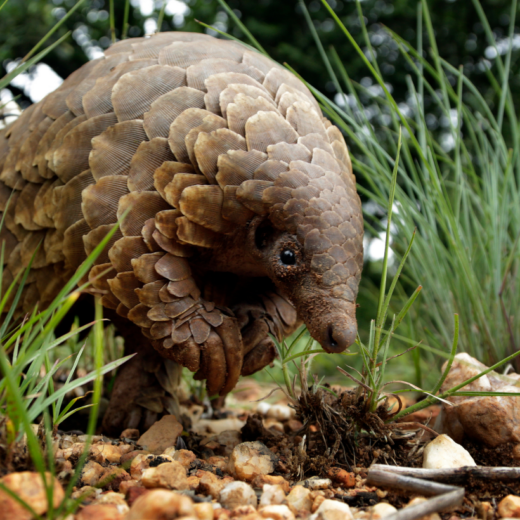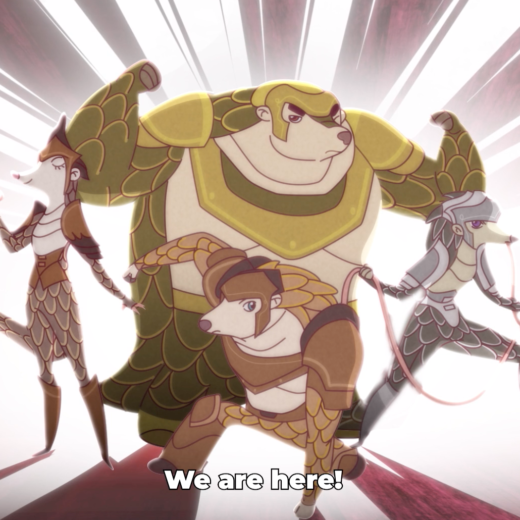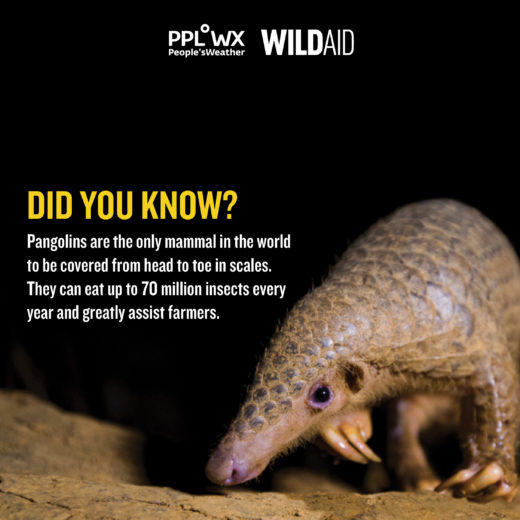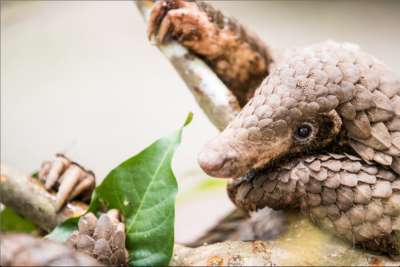
BY CHRISTINA VALLIANOS – WILDAID PANGOLIN CAMPAIGN DIRECTOR
It may come as a surprise to most people that the world’s most illegally traded mammal — far surpassing the poaching and trafficking rates of elephants, rhinos and other high-profile species — is a solitary, nocturnal, scale-covered creature they’ve likely never heard of: the pangolin, commonly known as the “scaly anteater.”
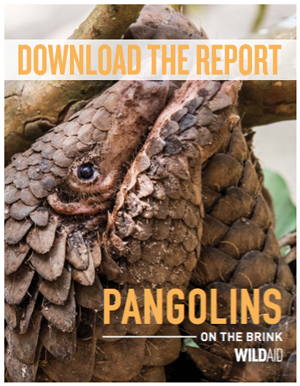

The International Union for Conservation of Nature (IUCN) Species Survival Commission (SSC) Pangolin Specialist Group recognized hunting and poaching of pangolins, largely for illegal international trade — the majority of which is destined for China and Vietnam — as their primary threat. In recent years, seizures of scales and whole pangolins, both live and frozen, have increased. Seizures of products originating from African nations, including South Africa, Cameroon, Nigeria, Sierra Leone and Uganda suggest that Asian markets are now sourcing African species to meet demand in China and Vietnam. Overwhelming evidence indicates that trafficking follows some of the same routes as that of elephant ivory and rhino horn, with some of the same criminals suspected to be profiting from the trade in all three products.
In 2008, two of the eight species were classified as Endangered by the IUCN — the Sunda Pangolin and the Chinese Pangolin. Less than a decade later all eight are threatened with extinction, with the former now Critically Endangered, the Indian and Philippine Endangered, and all four African species Vulnerable.
Pangolins are nocturnal and solitary, particularly vulnerable to poaching pressures because of their slow reproductive rate, sensitivity to capture-induced stress and instinct to curl into a ball when threatened, rather than attempt escape. Their elusive nature has made it difficult to estimate how many still exist in the wild, yet hunters, traders and locals have reported drastic declines in sightings of Asian species across different parts of their range. The rarity of sightings in the wild, coupled with the massive amounts of scales and carcasses seen in trade over the past decade, suggests that all eight species may be on the brink of extinction.
Vietnam and China’s rapidly emerging middle class is driving the illegal trade. Pangolin meat has become a luxury item and status symbol, consumed by business leaders and government officials. Despite an absence of scientific evidence to support the alleged curative properties, 70% of Chinese citizens believe pangolin products have medicinal value, as they use scales to “cure” rheumatism, skin disorders and wound infections. Meanwhile, China has distributed legal prescription medicines containing pangolin scale derivatives, utilizing ~25 tonnes each year since 2008 — that’s over 186 tonnes, representing approximately 400,000 pangolins — sourced from a stockpile of unknown size, and effectively perpetuating unproven medicinal beliefs: a 2015 WildAid survey found 66% of Chinese residents have purchased government approved medicines. In Vietnam, just 8% of residents believe pangolins have medicinal properties, but an additional 64% are currently undecided; they have heard scales can be used to increase libido, cure rheumatism, asthma, and even cancer, but don’t know if such claims are true. Yet despite such widespread use, 96% of Chinese and 98% of Vietnamese residents believe pangolins should exist on earth.
Maggie Q: Let Pangolins Live (English Version) from WildAid on Vimeo.
Highly specialized diets combined with weak immune systems and extreme sensitivity to capture-induced stress mean pangolins do not do well in captivity, with records showing the majority of individuals die within the first three years. The 100 zoos and organizations that have tried to sustain the animals over the past 150 years have recorded mortality rates up to 70% in the first year. These characteristics demonstrate that commercial breeding is not a viable option to supply the medicinal trade. While farming has been introduced to supplement wild populations of some species whose body parts are prized in traditional medicines, this is not a possibility for pangolins, and therefore the only way forward is to reduce hunting and the demand for their meat and scales.
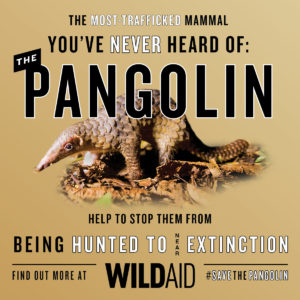

In order for pangolins to survive, they require greater protection under the Convention on International Trade in Endangered Species of Wild Fauna and Flora (CITES) treaty by uplisting all species to Appendix I, strengthened domestic legislation in some countries, improved international law enforcement efforts, educational initiatives to raise awareness and support for their conservation, and campaigns to reduce consumption in the key markets of China and Vietnam. Eliminating the main markets for meat and scales and subsequently profits from the illegal trade will remove incentive to poach pangolins. Eradicating the biggest threat to their survival will give Asian and African pangolins the best chance at recovering. Experts anticipate that populations can rebound and stabilize if poaching is contained. But for this to happen, the world needs to take notice of this unique creature and make a concerted effort to save it.
In addition to implementing the actions outlined in the IUCN SSC Pangolin Specialist Group’s Scaling Up Pangolin Conservation Action Plan, WildAid recommends the following:
Increase the level of protection for pangolins by uplisting all eight species to CITES Appendix I. An uplisting will make enforcement easier and conservation a global priority.
Reduce the demand for pangolin products in China and Vietnam through educational communication campaigns. If demand remains unchecked, pangolins may face extinction
Provide training to enforcement personnel to aid in arrests and convictions, and strengthen penalties to deter the illegal trade
Encourage China to remove pangolins from the Pharmacopoeia of the People’s Republic of China and end the use of scales in patented medicines and clinical trials
Encourage Chinese and Vietnamese TCM journals and websites to stop advocating use of pangolin scales in medical treatment
End the use of pangolin scales and other derivatives in China, Vietnam and the United States, aiming for a global ban
Ban or enforce the existing ban on the consumption of all pangolin meat in China and Vietnam
Preserve pangolin habitat by working to limit deforestation and land conversion in high-density regions
Stay in touch and get the latest WildAid updates.
SIGN UP
